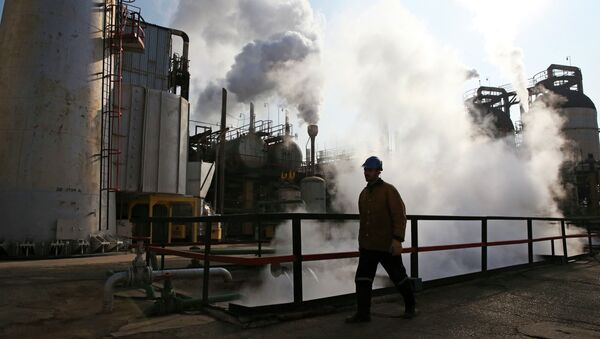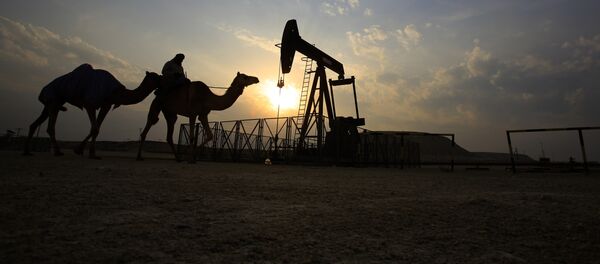However, the bank warned that if an output freeze is agreed it would benefit other suppliers of crude. The move could prove "self-defeating" for the cartel if it led to further price gains and an increase in supply from other producers.
"Thawing relationships between parties in conflict in areas of disrupted production would be more relevant to the oil rebalancing than an OPEC freeze, which would leave production at record highs. A production freeze would also likely prove self-defeating if it succeeded in supporting oil prices further," Bloomberg cited the report.
Analysts also noted that Saudi Arabia and Iran are still focused on market share and are unlikely to unilaterally agree on a production freeze.
Since then, Iran’s stance towards an output freeze has started to change. During the upcoming talks in Algeria, Tehran could agree on the initiative, but "on its own terms," independent Iranian energy expert Omid Shokri Kalehsar told Sputnik.
"Tehran hopes that it would be able to increase production to the levels before sanctions were imposed. Due to Western sanctions, Iran’s production and export capabilities dropped by one million barrels a day. Now, it is very important to restore the market share Iran had before sanctions. And then Iran would be ready to consider any international initiatives, including an output freeze," the expert pointed out.
At the same time, Iraq is now also increasing crude output and exports. Riyadh’s stance at the talks remains unclear.
During the years of sanctions, Saudi Arabia and Iraq took Iran’s share in the global oil market.
The competition in the global crude market is more than just economic. Having a bigger share means more political benefits, Kalehsar said.
According to him, the upcoming meeting in Algeria is likely to fail.
"Chances are high that talks between OPEC and non-OPEC producers in Algeria would produce no results. Such non-OPEC countries as Iraq, Saudi Arabia, Iran and even Russia are interested in increasing production," the expert said.
Last week, in order to boost its positions in the market, Saudi Arabia started to sell crude with discounts to countries that bought Russian oil, including Poland and Hungary. Russia was concerned about the move.
"As I said before, a consensus between OPEC and non-OPEC producers is unlikely during the upcoming meeting. It’s possible that some countries would adhere to their previous obligations and would not increase output. Otherwise, oil prices will continue to fall because the global market is oversupplied," Kalehsar concluded.




